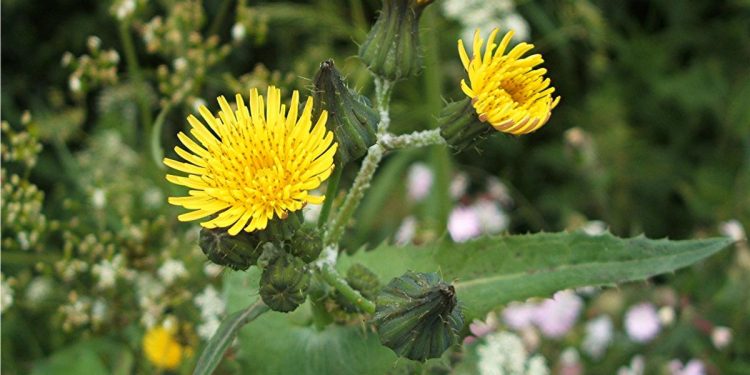#tags: #SonchusArvensis #WeedControl #Biofuels #Sustainability #InvasiveSpecies
Sonchus arvensis, commonly known as field sowthistle, is a weed that is found throughout the world, and is known for its ability to adapt to a wide range of environmental conditions. While it is often viewed as a nuisance by farmers and gardeners, recent research has suggested that Sonchus arvensis may have some potential uses in areas such as medicine, food production, and biofuels.
Development: Sonchus arvensis is known for its high concentration of antioxidants and other beneficial compounds, which could make it a valuable ingredient in a variety of health products. Some research has also suggested that Sonchus arvensis could be used to produce biofuels, due to its high oil content. Additionally, the plant’s high protein content makes it a promising candidate for use in animal feed, which could help reduce the environmental impact of meat production.
Consequences of Development: However, the potential benefits of Sonchus arvensis must be weighed against the potential risks of introducing it into new environments. As a highly adaptable and invasive species, there is a risk that Sonchus arvensis could become a major weed problem in areas where it is not currently present. Additionally, there is a risk that the plant’s high oil content could lead to unintended consequences if it is used as a biofuel feedstock on a large scale.
In order to fully understand the potential impacts of Sonchus arvensis, more research is needed to determine the plant’s potential uses and the risks associated with its introduction into new environments. By carefully considering the potential benefits and risks of this versatile plant, we can work towards developing sustainable solutions that take advantage of its unique properties while minimizing the potential harm to the environment.







